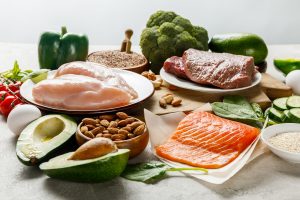 Muscle strength is essential to healthy aging. It’s often overlooked even though it plays a significant role in functionality, mobility, metabolism, and more. There is a powerful argument that muscle strength can be a major factor in the overall quality of life.
Muscle strength is essential to healthy aging. It’s often overlooked even though it plays a significant role in functionality, mobility, metabolism, and more. There is a powerful argument that muscle strength can be a major factor in the overall quality of life.
Now you probably know that muscle strength is inextricably linked to weight training. Lifting weights or adding resistance to muscles makes them stronger.
Advertisement
You don’t need to be able to lift 300 pounds, but being strong enough to perform life’s daily requirements helps you remain independent and have a lower risk for injury and other accidents.
But exercise is only part of the story. If you want your muscles to get stronger, or at least stop muscle tissue from wasting away, you need to eat enough protein. Protein, predominantly from animal sources, gives muscles what they need to thrive.
The recommended daily allowance for protein is 0.36 grams per pound of body weight (0.8 g per kilogram). Many experts suggest this recommendation is too low, particularly for older individuals who are more prone to muscle loss.
There is a growing body of voices who suggest those recommendations should be doubled.
So, what are the best dietary sources of protein?
Eggs and Egg Whites: Eggs are a great source of protein, and egg whites are even better. Egg whites are essentially pure protein and can help you get a nice boost as part of a light breakfast. One egg white has 6 g of protein, and a half-cup of liquid egg whites has 11 g.
Chicken Breast: Chicken breast is a lean protein source, and a 6 oz serving has about 52 grams of protein.
Advertisement
Greek Yogurt: Greek yogurt is a dense source of protein, as well. A 6-ounce container has 17 g.
Whey Protein: Whey protein supplements are another efficient source of protein. They are quick, easy, and tasty for the days when you may not have an appetite. Most varieties offer 24 g/serving.
Protein gives muscles the support they need so they can support you. Boost intake to help get stronger and maintain muscle.
